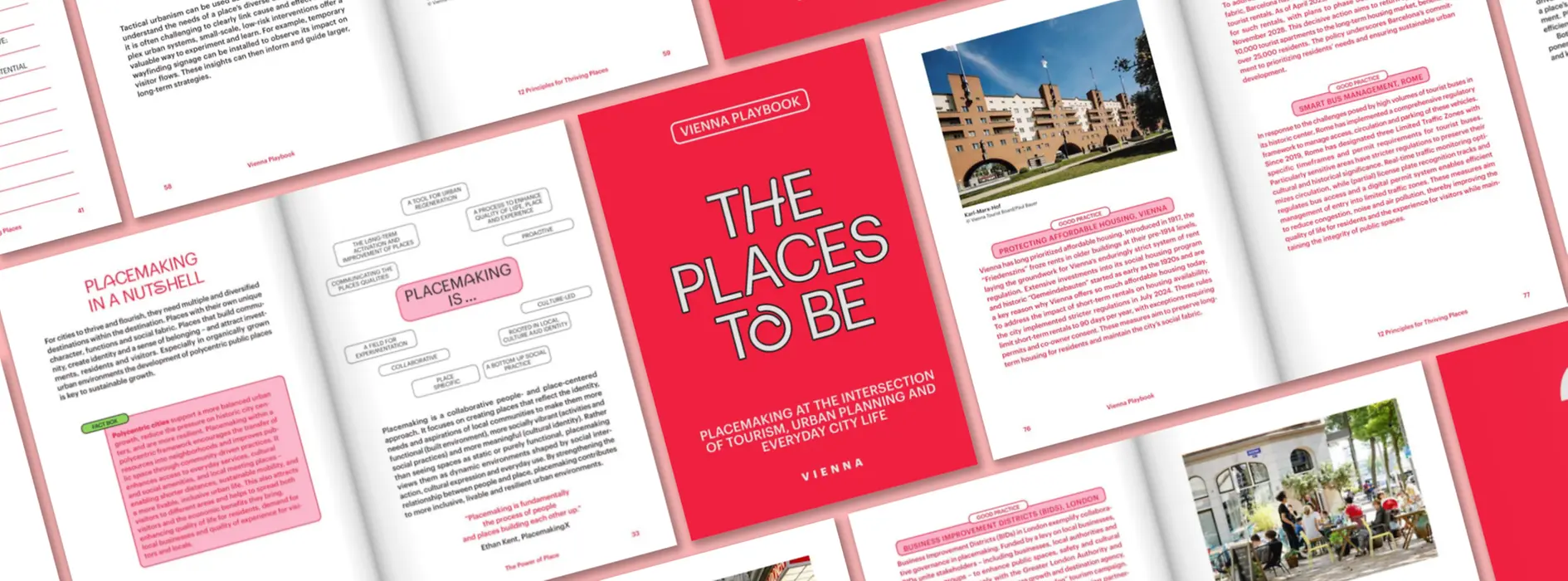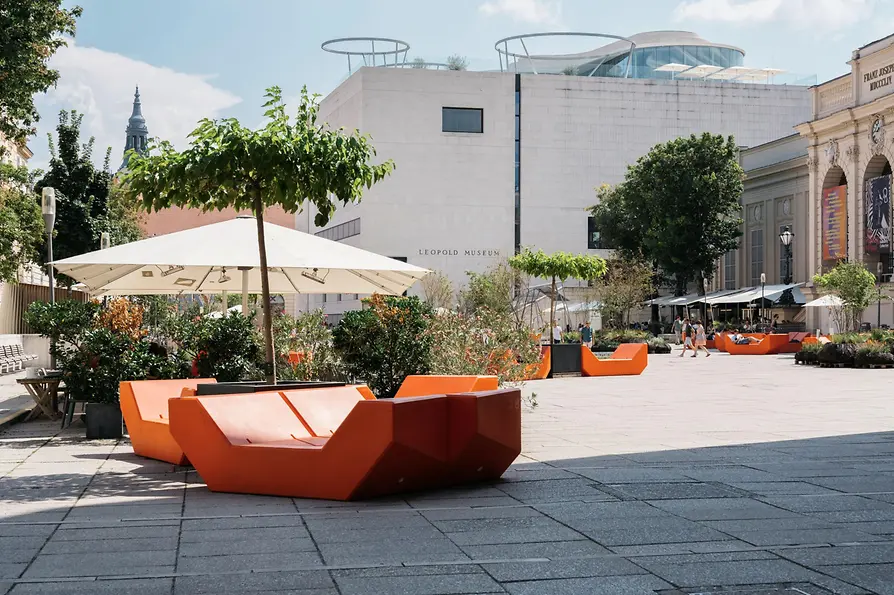Placemaking
Placemaking makes a destination unique, attractive and inclusive, while also bringing it to life. Compelling new locations within the destination create additional attractions for visitors and help to ensure that the positive effects of the Visitor Economy are distributed more evenly throughout the city. This is one of the core objectives of Vienna’s Visitor Economy Strategy. One of the prerequisites for achieving this is careful alignment of urban planning and tourism development considerations. Vienna works with science and research to advance dialog in this area, both at a local and international level.
Vienna Playbook: The Places To Be
The “Vienna Playbook: The Places To Be” is the central outcome of the Placemaking Action Program. It brings together experiences, best practices, and international examples, showing how public spaces can be designed to be vibrant, inclusive, and future-proof. Developed in collaboration with experts from urban development, research, and practice, it offers a hands-on guide that provides both inspiration and concrete recommendations for action. Download it now and gain fresh impulses for shaping the city!
Placemaking is all about designing places strategically with a view to making them attractive for visitors and residents alike, while also creating added value at the neighborhood level. Tourist appeal becomes a driver for inclusive urban development – and the reverse holds true, too. Residents are encouraged to participate in the process by contributing their own insights. Placemaking builds on the factors that already make Vienna one of the world’s most livable cities: everything close at hand, social housing, green spaces, urban culture and a diverse local economy. Thoughtfully-designed public spaces create focal points for residents and visitors. Key elements include inviting and versatile street furniture, climate-adaptation measures, and smart mobility solutions.
Why Placemaking?
The various ways of striking the right balance are currently being explored by Cornelia Dlabaja, Endowed Professor for Sustainable Urban and Tourism Development at FH Wien der WKW, who is providing academic support for the Visitor Economy Strategy in this action area. With the support of Ethan Kent (PlacemakingX), Greg Clark (The Business of Cities), and Johannes Lutter (UIV Urban Innovation Vienna), the Vienna Tourist Board and sociologist Cornelia Dlabaja will present these insights in the form of a White Paper as part of the international dialog in this area. Objective: the successful Vienna model for sustainable tourism development will set an international precedent and contribute to the vital discourse between tourism and urban planning, theory and practice, policymakers and communities. Target groups include international destination management and marketing organizations, city administrations, planners and developers, interest groups, and science and research.Collaboration between Research, Urban planning and Tourism
The Vienna Tourist Board relies on long-standing cooperation with science and research to create solid foundations and innovative solutions for Vienna’s path towards “Optimum Tourism”. Wirh the "Vienna Playbook" the Vienna Tourist Board – with the support of experts from research and education – brings its own expertise to the table every bit as much as it draws on the experiences of other major cities. Some of the key questions that we want to address in the White Paper: How can placemaking be implemented in existing Viennese neighborhoods and new urban districts? How can both residents and visitors benefit from this (keyword: “tourism readiness”)? What can urban planning learn from tourism, and vice versa? What impetus can Vienna and other cities provide to address the challenges of our time?Contribution to International Discourse


